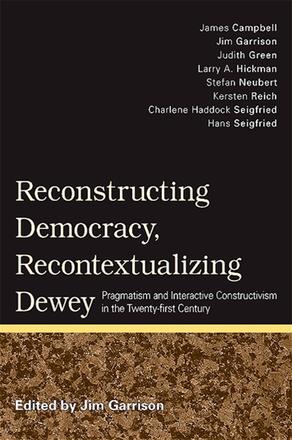
Reconstructing Democracy, Recontextualizing Dewey
Pragmatism and Interactive Constructivism in the Twenty-first Century
Alternative formats available from:
Leading scholars challenge and reinvigorate the pragmatic method of John Dewey.
Description
Focusing on issues of diversity, difference, and inclusion, leading scholars explore John Dewey's pluralistic, deliberative, and communicative theory of democracy. They discuss the tensions between Dewey's two criteria for a democratic society found in Democracy and Education; critique and recreate Deweyan democratic pluralism from a contemporary European perspective that acknowledges the importance of postmodern and poststructuralist thought; examine Dewey's theory of inquiry in ways that illuminate his thinking about the deliberative functions of democracy; and probe the communicative aspects of democracy, emphasizing how emotions and interests both help and hinder communication. These essays challenge, revise, and reinvigorate Deweyan thinking, offering guidance for deeply democratic remedies to the fears, ontological wounds, and practical needs that characterize our problematic times.
Jim Garrison is Professor of Philosophy and Education at Virginia Tech. His many books include The Educational Conversation: Closing the Gap (coedited with Anthony G. Rud Jr. ), also published by SUNY Press.
Reviews
"Reading Dewey through the eyes of postmodern theories of social/interactive constructivism, these essays not only speak to issues of identity and power that Dewey elided, they speak directly to each other in a conversation about how democracy can become more deeply embedded in all aspects of experience. " — CHOICE
"This is a major collection of distinguished scholars in the field. " — Thomas M. Alexander, coeditor of The Essential Dewey: Pragmatism, Education, Democracy
"There are many people who understand the big three of pragmatism—Peirce, James, Dewey—and appreciate the inspirational rhetoric of that tradition but who have trouble translating those philosophical giants into contemporary contexts. This volume does so admirably. " — Michael Sullivan, Emory University